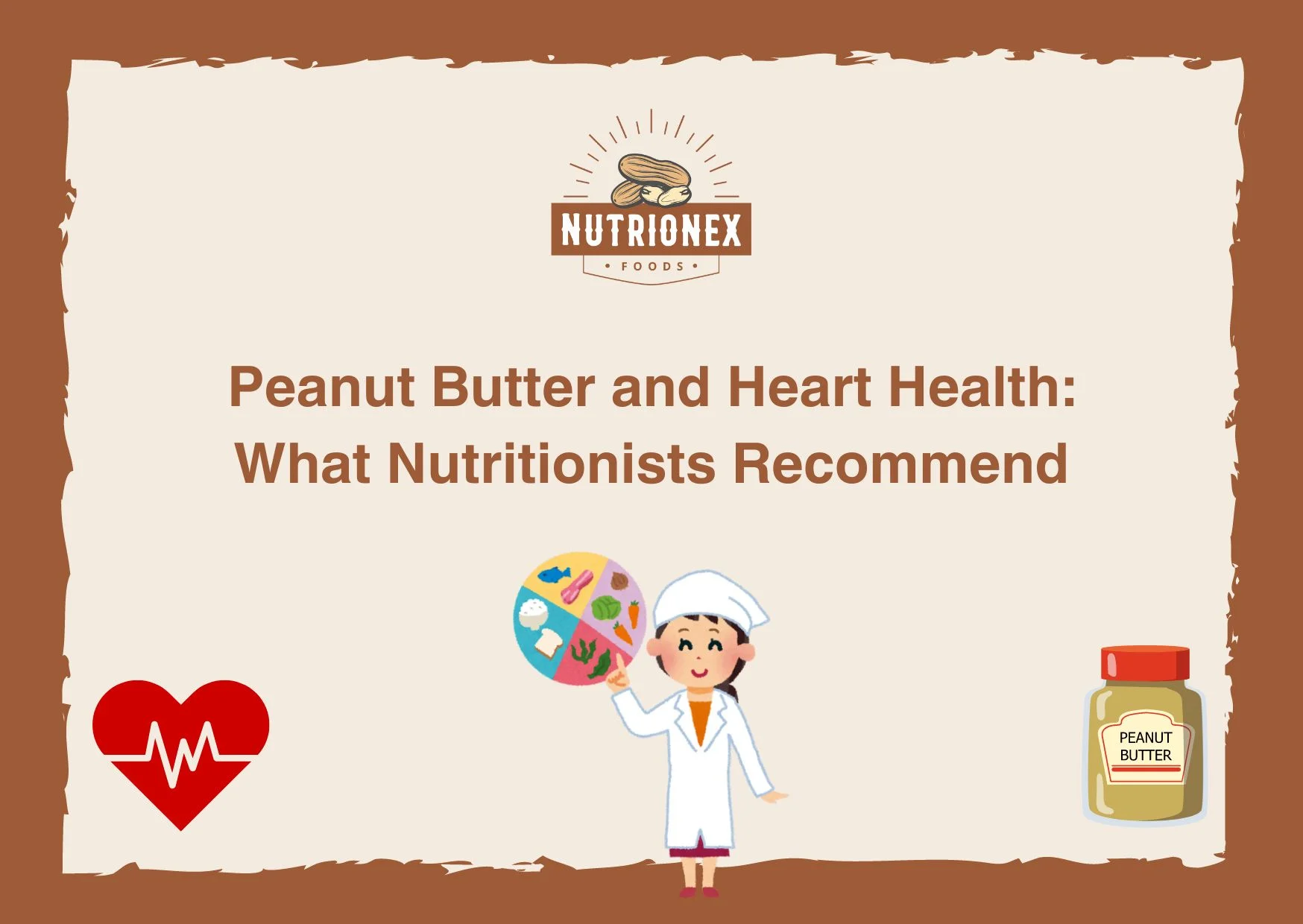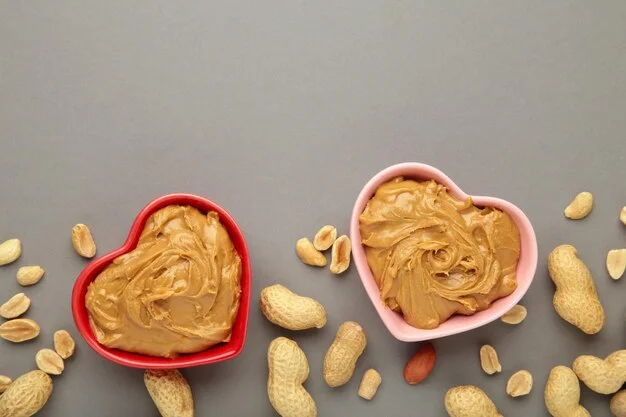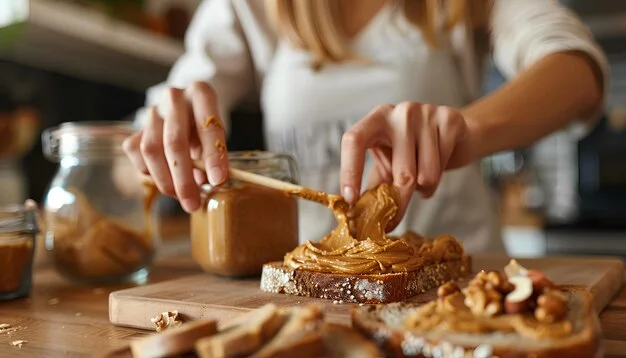
Peanut Butter And Heart Health: What Nutritionists Recommend
Ever wonder if your favorite spread could secretly be a good magic bullet toward heart health? I'm sure as you reach for that jar of peanut butter, what you are about to learn will surprise you about its promise as a cardio-protective agent. Sure, nutritionists have long since touted the benefits for heart health of nuts in general, but peanut butter certainly is not typically high in the mix. In addition to being creamy or crunchy, this staple can offer so much more than just a satisfying snack. You'll find what top nutritionists have to say about working peanut butter into a heart-healthy diet—from the nutrient makeup down to serving sizes—in this article.
The Nutritional Profile of Peanut Butter
You'll find, upon examination of the nutritional makeup for peanut butter, there is a broadly varied collection of essential nutrients that have made it famous as heart-healthy food. Keeping such knowledge in mind will help you make appropriate decisions when learning to incorporate peanut butter into your diet.
Essentially, peanut butter is a fat source. In a 2-tablespoon serving size, it comes out to about 16 grams. Of these, large portions are monounsaturated and polyunsaturated fats that tend to be good for the heart. In this serving, you'll have about 8 grams of protein and 6 grams of carbohydrates.

Micronutrients
Aside from being a good source of macronutrients, peanut butter is rich in different vitamins and minerals. Specifically, it acts as a good source for:
• Review Vitamin E: an antioxidant for heart health.
• Magnesium, an essential element in muscle and nerve function.
• Phosphorus for healthy bones.
• Zinc, is needed for immune function.
Caloric Content:
Yes, this is true: peanut butter is dense in calories. A 2-tablespoon portion delivers about 190 to 200 calories. While this may be good for you if you want to increase the overall caloric intake, lay some hold on the portion size if you are onto some weight loss program.
Sodium and Added Sugars
When choosing the peanut butter, one should never ignore its sodium and sugar contents. What is more, some brands include salt and sweeteners within, which certainly affects the final nutritional value. Natural or no-sugar-added styles will help one avoid excessive add-ons.
Knowing the real nutritional makeup of peanut butter may make you appreciate how this food can contribute to heart health and overall nutrition.
How Peanut Butter Impacts Heart Health
Of the many staples in one's pantry, peanut butter has raised many eyebrows because of its potential impact on heart health. As you are taking this creamy PB spread into your diet, what is enormously important is how it will work on your cardiovascular system.
Nutrient Profile and Heart Benefits
Peanut butter is rich in heart-healthy monounsaturated and polyunsaturated fats. These are types of fats that help lower LDL, or bad, cholesterol while either maintaining or increasing HDL, or good, cholesterol. In addition, peanut butter contains a number of nutrients important in overall heart health: vitamin E, magnesium, and potassium.
Moderation is Key
While peanut butter is full of advantages, it is essential to eat it in moderation. This spread comes with a lot of calories, the approximate value being 190-200 per serving. Too much consumption will result in increased weight gain, hence canceling the benefits associated with heart health. Aim at a serving size of 1-2 tablespoons daily as part of a balanced diet.

Choosing the Right Peanut Butter
If you really have to eat peanut butter for heart health, then go for natural ones without added sugars or oils, particularly hydrogenated fats that may cancel the power of the natural nuts. Be sure to check those labels for as few ingredients as possible – no more than peanuts and perhaps a touch of salt.
Incorporating Peanut Butter into a Heart-Healthy Diet
One is recommended to combine peanut butter with other heart-healthy foods or ingredients to reap maximum benefits on cardiovascular health. Spread it on whole-grain toast, whirl it into a smoothie with berries and leafy greens, or use it as a dip for fresh fruits and vegetables. By pairing peanut butter thoughtfully within your diet, you'll be able to kick support into high gear for heart health while enjoying its flavor.
Peanut Butter in a Heart-Healthy Diet: Tips from Nutritionists
Spice up such a heart-healthy diet with some peanut butter. Nutritionists recommend this spread even in greater versatility thanks to the possible cardio-protective advantages that abound. Here's how you can derive maximum benefit from peanut butter for heart health:
Choose Natural Peanut Butter
Reach for natural peanut butter with no added sugars or hydrogenated oils. These include healthier fats and fewer additives, thus are easier on your cardiovascular system. Check the ingredient list. It should only contain peanuts—maybe with a touch of salt.
Practice Portion Control
Though dense in nutrients, peanut butter is also an excellent source of calories. Nutritionists recommend that you should not consume more than two tablespoons daily. This serving size provides a good balance of its nutrient profile without excessive calories for you to maintain a healthy weight—solid evidence toward heart health.

Pair with Heart-Healthy Foods
Maximize the power of peanut butter by mixing it with other heart-friendly foods. Spread on whole-grain toast, add it to oatmeal, or be used as a dip for fresh fruits and vegetables. Not only is the flavor going to be enhanced, but so will your nutrient intake.
Consider Timing
This can be very beneficial when you're exercising and incorporating peanut butter into the mix for either pre- or post-workout snacks. The protein present in it helps with muscle recovery, while its good fats will give you energy, which could last some time. Now, this will support you in exercising regularly, valuable in keeping a healthy heart.
Follow these expert tips for including peanut butter in your heart-healthy diet and reap the nutritional benefits. Be sure to discuss your specific health needs with your healthcare provider or a registered dietitian.
Conclusion
Remember that if you're considering peanut butter as part of a heart-healthy diet, it is one of both moderation and overall nutritional balance. While there are ample cardiovascular benefits from the inclusion of peanut butter into one's diet, this should be part of balanced eating—full of fruits, vegetables, whole grains, and lean proteins. Consult with your health provider or registered dietitian to establish an optimal amount based on the needs and related health goals for your individual case. Accompanying peanut butter with other wholesome foods and making smart choices in its consumption can make for a delicious act in support of heart health and overall well-being for years to come.
